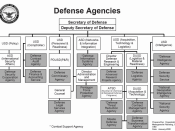Between 1982 and 1990, the United States Congress enacted a series of laws designed to inform victims and witnesses of crime of their rights and positions in the criminal justice system. The last of the series, the Victims' Rights and Restitution Act of 1990, imposed a duty on departments and agencies of the United States engaged in detecting, investigating, or prosecuting crimes, and incarcerating those convicted, to see that victims are accorded specific rights and certain services. Congress via the President directed the Department of the Navy (DON) meet mandatory requirements in relation to the rights of victims and witness within the military justice system.
Today, the U.S. Navy is a benchmark organization in regards to the rights of victims and witnesses. The provisions described in this essay are not limited to offenses prosecuted at courts-martial (equivalent to a felony offense and trial). Crime victims and witnesses do not forfeit their status when offenses are referred for non-judicial punishment or administrative separation processing (minor offenses).
In overseas locations, these terms are limited to victims and witnesses who are military members (and their families), Department of Defense civilian employees, and contractors (and their families).
Within the DON, victims have the right to address the court at sentencing. A government trial counsel must provide notification to victims of the opportunity to present to the court at sentencing, in compliance with applicable law and regulations, a statement of the impact of the crime on the victim including financial, social, psychological, and physical harm suffered by the victim. Victims have the right to be present at all public court proceedings related to the offense, unless the court determines that testimony by the victim would be materially affected if the victim heard other testimony at the trial.
The victim's perspective may be considered before early...


